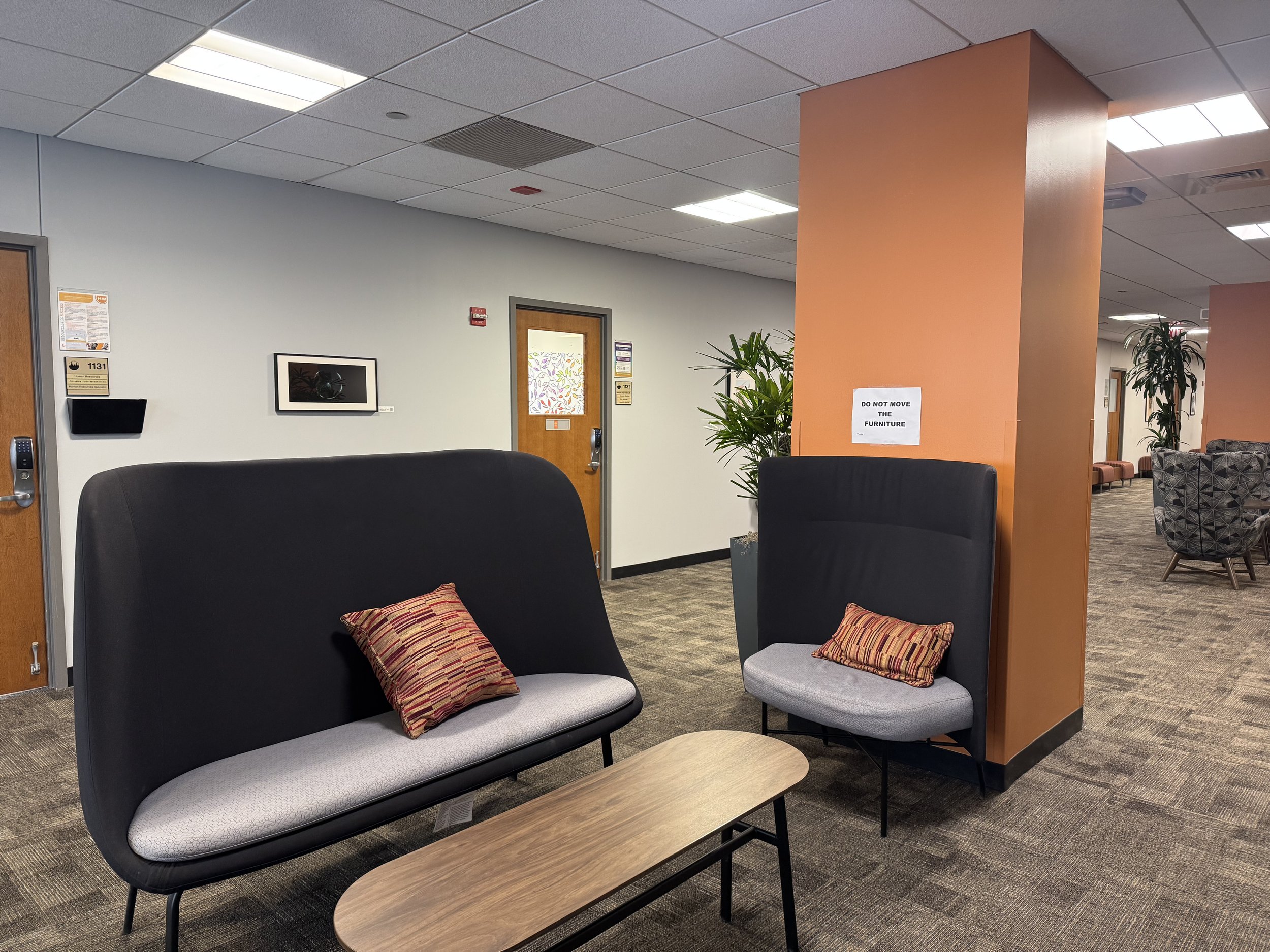
Find a place where you can focus.
There’s no one perfect place to study—what matters most is finding a space that works for you. Some students need a quiet room and a desk. Others feel more connected and focused when they study on campus. Whether it’s your bedroom, the 11th floor of the college building, or even your job’s front desk, where you study can shape how well you study.
What students figured out
As they adjusted to college life, every student in our interviews eventually found a study spot that helped them focus. Some discovered that they did their best work at school—especially in quiet spaces like the library, the 11th floor, the Student Government offices, or STEM labs. Staying on campus helped these students feel more connected to the college and more able to access resources.
Others found or created spaces at home that supported learning. Some transformed bedrooms or closets into mini home offices. But home wasn’t ideal for everyone—some students said that it was too easy to get distracted or procrastinate when they stayed in.
Then there were students who got creative. Some made use of their jobs, finding downtime to study at a front desk or during slow work-study shifts. One student even described this shift as a “game changer.”
“I have a little desk in a room next to my bedroom, which is also the closet, and I bought a chair and everything, and I made it like my space…It’s really important having a space to work.”
— Arlin
“I used to be a server, but now I work at the front desk of an insurance agency. I can get so much done there. I tell everyone to look for a job like that.”
— Elli
“It helps to stay on campus after class. When I study there, I feel more focused and it’s easier to stay motivated.”
— Eric
Students’ favorite places on campus
Marnee
Amir
Oscar
Precious
Yvette
This is how students found the right spot:
Walk around campus and test out a few spots—quiet library corners, empty classrooms, student lounges. Notice how each one feels.
If you’re at home, try dedicating one space to schoolwork only—even a small desk in the corner can make a difference.
Consider unexpected places: a long bus ride, or a quiet shift at work.
Look for jobs that have down time or flexible schedules to help you work. Consider front desk jobs and work-study jobs.
If you know you work well on campus, plan your schedule with built in study blocks between classes.